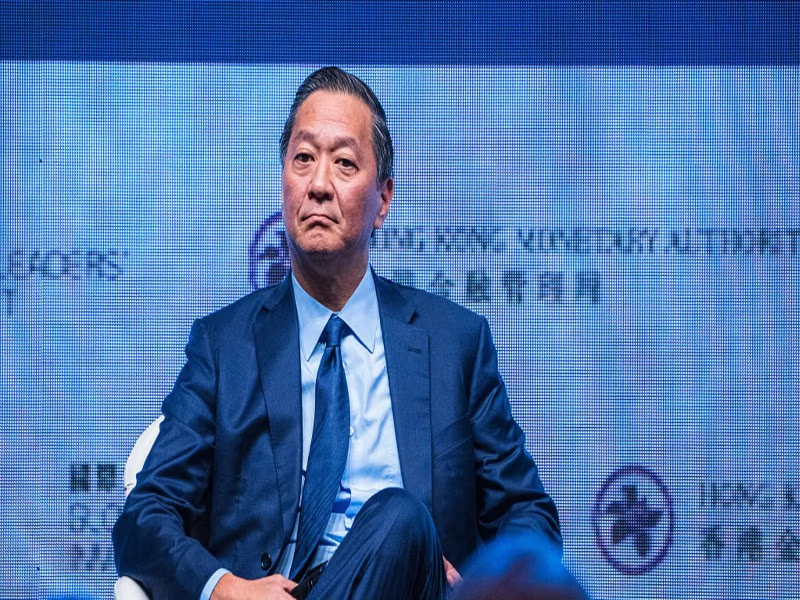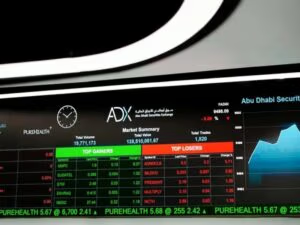Many industry players are preparing for a wave of consolidation as managers of private equity funds try to appeal to investors who are demanding better returns and stronger governance, forcing a shakeout of the overcrowded industry, several industry veterans said at a high-level finance summit in Hong Kong on Tuesday.
KKR & Co.’s co-CEO Joseph Bae said on Tuesday, “How is it that there are more private equity funds in North America than there are McDonald’s franchises,” pointing to the fact that the U.S. has approximately 14,000 of the fast-food franchises and 19,000 private equity funds.
Bifurcation of funds’ performance has become more “extreme” than it has been in the last decade, as Bae said at the Global Financial Leaders Investment Summit.
He stated that “You have to be very disciplined in a market like this and focus on … fundamental, operational value creation in companies, bring better governance to the table.”
The gap expansion came after a private equity spending spree in 2021, as firms scrambled to put unspent funds to work, and ultra-low interest rates stimulated activity.
The PE firms usually hold portfolio companies over a period of more than five years before disbursing them; hence, most of the investments are currently difficult to sell or reprice in a higher-rate environment.
During an interview with CNBC, Co-chairman of Oaktree Capital Management, Howard S. Marks, warned that “the era of ultra-low rates is over.”
He projected that the current easing cycle would bring the U.S. interest rates down to only 3-3.5 percent, which would be “neither stimulative nor restrictive.” Meanwhile, the interest rates of the Federal Reserve were reduced to 3.75-4 percent last week.
Bae indicated that the companies that had remained disciplined in the post-pandemic liquidity rush-not making any inflated valuations and low-cost leverage-are the ones that are outperforming.
Over the past few years, private equity groups have experienced difficulty in raising new money, and their unsold assets and the returns to investors have been declining.
Limited partners and the fund investors are coming under closer scrutiny by managers than ever before, demanding greater performance and stricter government.
In an interview with the Financial Times earlier this week, the CEO of Sweden’s EQT, Per Franzén, said that it is estimated that about 5,000 of the existing number of private equity firms had made it through the past seven years by raising funds successfully.
He also mentioned that 80 percent of such companies were likely to become zombie firms in the coming decades and operate only on the current investments due to their inability to generate new funds.
Franzen claims that fewer than 100 globally diversified companies might seize nearly 90 percent of the capital that enters the private markets in the upcoming round of the fundraising cycle.
Although that might not be very promising, industry veterans of the private equity firms note that the result of consolidation will eventually make the asset class stronger, eliminating the weak and reinstating discipline in the sector.
CEO of CVC Capital Partners PLC, Rob Lucas, added at the Hong Kong summit panel that “There are going to be winners and losers … it’ll all come down to performance.” Pointing out that consolidation is inevitable and is a “sign of strength” rather than “in any way a negative aspect.”
PE giants are positive regarding the increased capital demand and indications of returned liquidity due to the increasing popularity of secondary funds, or secondaries, which buy interests or assets of the primary investors in capital funds.
CEO of the Carlyle Group, Harvey Schwartz, said, “The demand for capital of all forms for the next 5, 10, 15 years in the business that we’re in is only growing,” indicating the global economic expansion and an inflection point for technology that’s generating new investments.
Schwartz reported that secondaries, one of the most rapidly expanding businesses of Carlyle, is “just in the beginning of creating a more dynamic flow of capital for the entire industry.”
According to an industry report by iCapital, the market in the secondaries is prominent, and the volume of transactions is expected to rise to over $200 billion this year, compared to $160 billion the previous year, and is projected to grow to $381 billion in 2029.
Although analysts predict that ultra-low interest rates are no longer in sight, the chances of comparatively low borrowing costs, as the Fed declared the termination of quantitative tightening last week, promise two rate cuts since September, which would further enhance the financing environment of dealmaking.
EY reported that another indication of renewed optimism with the revived activity in the third quarter of the year, recording a record deal value of $310 billion, as companies took advantage of the valuation gaps and the restored confidence in the markets by investors.
The private capital groups are expanding their horizons to the U.S. pensions and endowments as the Trump administration, earlier this year, granted an executive order that allowed 401(k) retirement schemes to invest in various other alternative assets.
A survey by AlphaSights and EY found that 90 per cent of the surveyed private equity firms are at least “somewhat interested” in the development of products in the 401(k) market.






